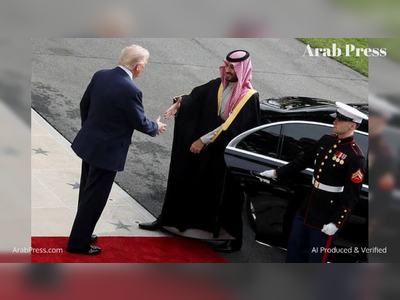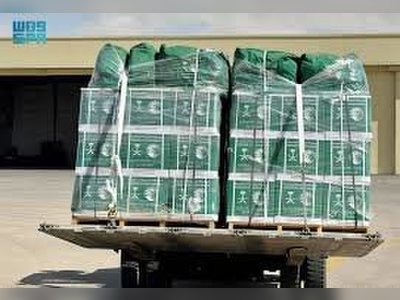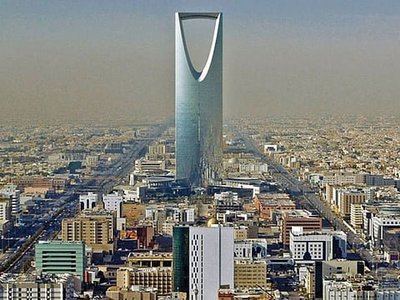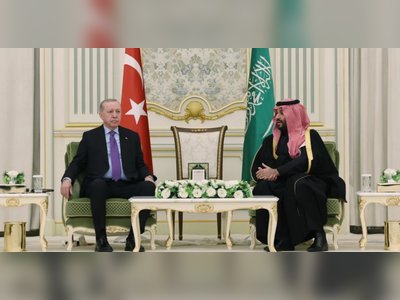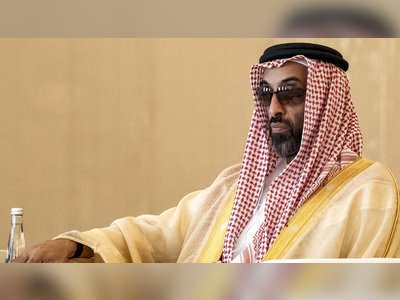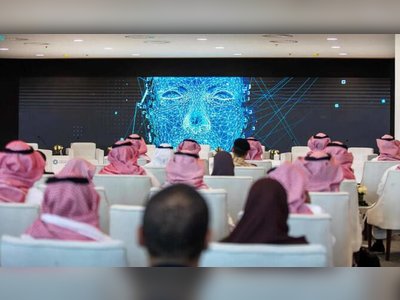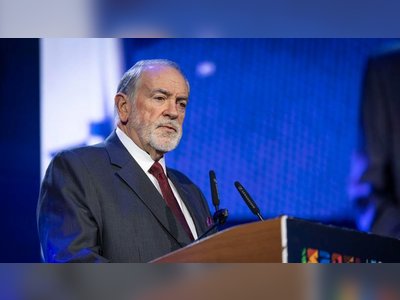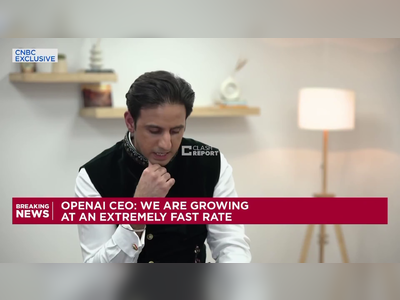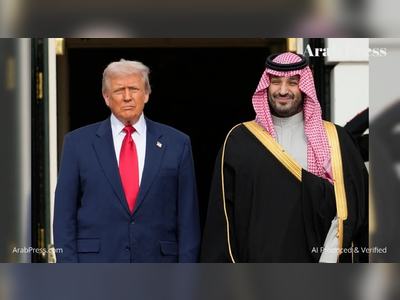Trump's Return Casts a Shadow over Davos Summit
The 55th World Economic Forum Faces Shifts in Global Priorities amid Trump's Policies
As the World Economic Forum (WEF) opens its 55th annual summit in Davos, attention is divided between Switzerland and Washington.
Hundreds of participants at the forum are expected to tune in for the inauguration of U.S. President Donald Trump, whose return to the White House marks a pivotal shift in global economic priorities.
The forum, bringing together around 3,000 leaders from business, politics, and civil society, focuses on the theme 'Cooperation in the Smart Age.' This gathering, framed by the principles of openness and collaboration established by forum founder Klaus Schwab in the 1970s, is overshadowed by concerns about isolationist policies and trade barriers that may arise during Trump’s second term.
Several participants from the U.S. are expected to arrive late, having attended Trump's inauguration in Washington.
High-profile leaders from the tech industry, who significantly contributed to Trump’s campaign, are among those supporting his presidency.
Trump's re-election coincides with an expansion in business sectors supporting his policies, which have shifted focus towards profitability and innovation, departing from the environmental, social, and governance (ESG) standards previously emphasized.
Trump’s economic agenda, with the potential imposition of new tariffs, stands in contrast to the WEF’s advocacy for free trade and sustainability.
Meanwhile, a segment of the attendees views Trump's return favorably, expecting benefits from proposed tax cuts and deregulation of the banking sector.
Against this backdrop of anticipated policy shifts, many investors come to Davos with increased wealth, as illustrated by the 23% rise in the Standard & Poor’s 500 index over the past year, driven largely by technology stocks.
The optimism surrounding Trump’s election victory contributed to record-setting highs in U.S. stock markets, despite trade tariff concerns.
Cryptocurrency markets have also shown unprecedented growth, with Bitcoin surpassing $100,000 in December, propelled by Trump's commitment to make the U.S. a hub for digital currencies.
This year's forum will include discussions on the future of cryptocurrencies, featuring major players like Coinbase and Circle.
This is not the first time Davos finds itself facing the 'Trump challenge,' as in 2017, when Chinese President Xi Jinping promoted an alternative to protectionism and advocated for balanced globalization during Trump's first inauguration.
The WEF leadership appears cognizant of the changes accompanying Trump's second term, aiming to adapt while maintaining a stance on the importance of international cooperation.
The forum’s agenda focuses on 'redefining growth', adapting industries in the AI era, developing human capital, protecting the planet with advanced technologies, and rebuilding trust globally and within societies.
Trump’s address, scheduled to be delivered via video on Thursday, is keenly anticipated for insights on international cooperation, free trade challenges, and AI-era complexities.
Among the forum's events is a session featuring Argentine President Javier Milei, a Trump ally, whose unconventional economic policies have sparked intrigue.
Founder Klaus Schwab, in his opening remarks, expected to be delivered on Tuesday, acknowledges the challenges faced by the forum, emphasizing the importance of finding a 'new balance between national and global interests.' Schwab remains hopeful for constructive optimism, stressing the importance of strategic, innovative, and constructive approaches to shaping the future amid short-term pressures.
Schwab’s vision is echoed by influential figures like German Chancellor Olaf Scholz, Spanish Prime Minister Pedro Sánchez, and UN Secretary-General António Guterres, who will also highlight the benefits of globalization and free trade achieved since 1971.
Hundreds of participants at the forum are expected to tune in for the inauguration of U.S. President Donald Trump, whose return to the White House marks a pivotal shift in global economic priorities.
The forum, bringing together around 3,000 leaders from business, politics, and civil society, focuses on the theme 'Cooperation in the Smart Age.' This gathering, framed by the principles of openness and collaboration established by forum founder Klaus Schwab in the 1970s, is overshadowed by concerns about isolationist policies and trade barriers that may arise during Trump’s second term.
Several participants from the U.S. are expected to arrive late, having attended Trump's inauguration in Washington.
High-profile leaders from the tech industry, who significantly contributed to Trump’s campaign, are among those supporting his presidency.
Trump's re-election coincides with an expansion in business sectors supporting his policies, which have shifted focus towards profitability and innovation, departing from the environmental, social, and governance (ESG) standards previously emphasized.
Trump’s economic agenda, with the potential imposition of new tariffs, stands in contrast to the WEF’s advocacy for free trade and sustainability.
Meanwhile, a segment of the attendees views Trump's return favorably, expecting benefits from proposed tax cuts and deregulation of the banking sector.
Against this backdrop of anticipated policy shifts, many investors come to Davos with increased wealth, as illustrated by the 23% rise in the Standard & Poor’s 500 index over the past year, driven largely by technology stocks.
The optimism surrounding Trump’s election victory contributed to record-setting highs in U.S. stock markets, despite trade tariff concerns.
Cryptocurrency markets have also shown unprecedented growth, with Bitcoin surpassing $100,000 in December, propelled by Trump's commitment to make the U.S. a hub for digital currencies.
This year's forum will include discussions on the future of cryptocurrencies, featuring major players like Coinbase and Circle.
This is not the first time Davos finds itself facing the 'Trump challenge,' as in 2017, when Chinese President Xi Jinping promoted an alternative to protectionism and advocated for balanced globalization during Trump's first inauguration.
The WEF leadership appears cognizant of the changes accompanying Trump's second term, aiming to adapt while maintaining a stance on the importance of international cooperation.
The forum’s agenda focuses on 'redefining growth', adapting industries in the AI era, developing human capital, protecting the planet with advanced technologies, and rebuilding trust globally and within societies.
Trump’s address, scheduled to be delivered via video on Thursday, is keenly anticipated for insights on international cooperation, free trade challenges, and AI-era complexities.
Among the forum's events is a session featuring Argentine President Javier Milei, a Trump ally, whose unconventional economic policies have sparked intrigue.
Founder Klaus Schwab, in his opening remarks, expected to be delivered on Tuesday, acknowledges the challenges faced by the forum, emphasizing the importance of finding a 'new balance between national and global interests.' Schwab remains hopeful for constructive optimism, stressing the importance of strategic, innovative, and constructive approaches to shaping the future amid short-term pressures.
Schwab’s vision is echoed by influential figures like German Chancellor Olaf Scholz, Spanish Prime Minister Pedro Sánchez, and UN Secretary-General António Guterres, who will also highlight the benefits of globalization and free trade achieved since 1971.
